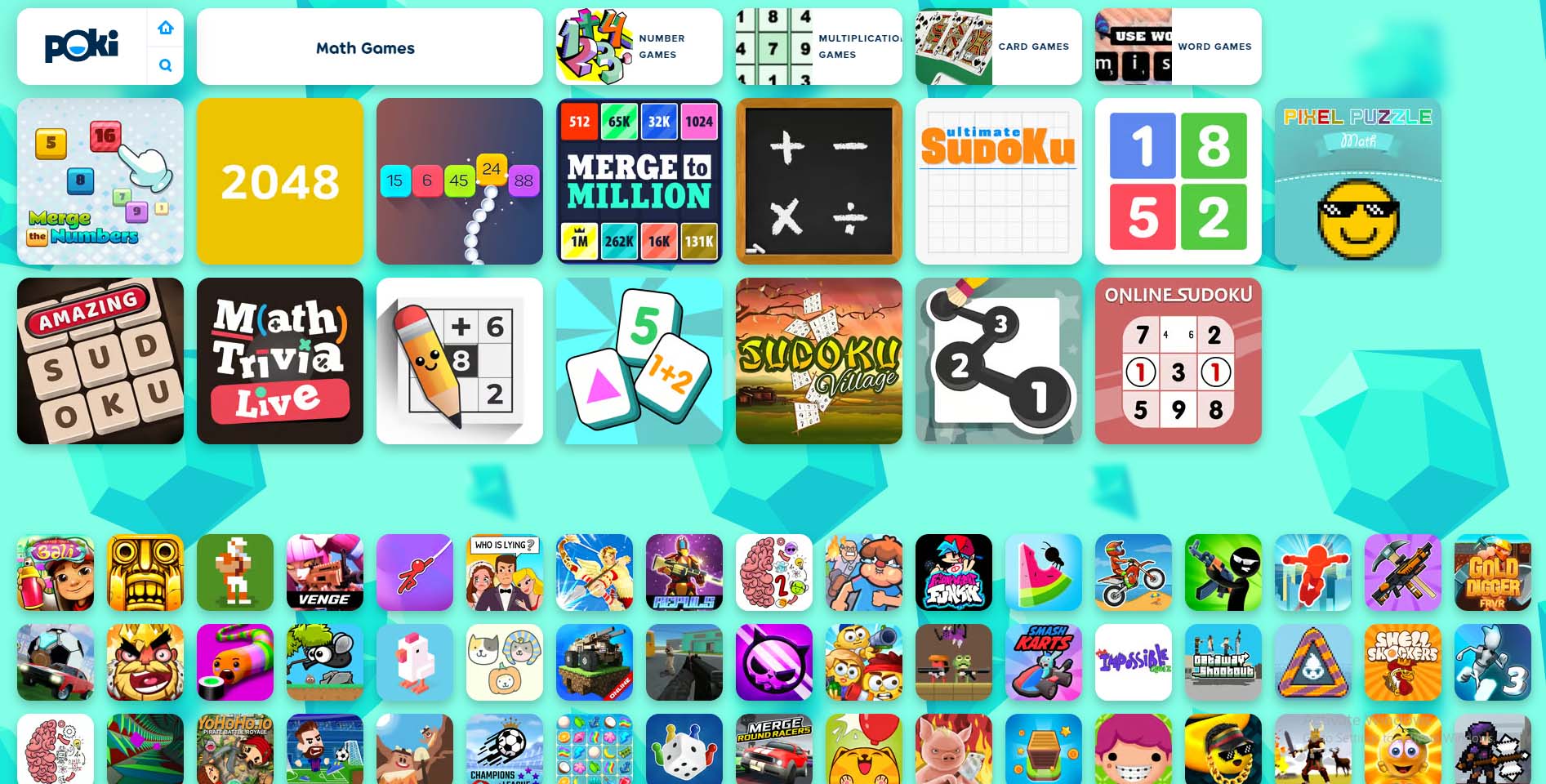


Discover a world of engaging math games that combine learning and fun! Math games provide an interactive and enjoyable way to strengthen math skills, enhance problem-solving abilities, and promote critical thinking. With a wide range of online and offline options available, players of all ages can explore various math concepts, from basic arithmetic to advanced problem-solving. Dive into a captivating learning experience as you solve puzzles, tackle challenges, and compete with friends. More
Math games can be interesting and engaging for many students. By presenting mathematical concepts in a fun and interactive way, math games can help make learning math enjoyable and entertaining. They provide an opportunity for students to practice and apply mathematical skills in a different context, which can help reinforce learning and improve retention.

Math games can be played individually or in groups, fostering collaboration and friendly competition among students.Group math games encourage teamwork and allow students to learn from each other's strengths and weaknesses, promoting a supportive learning environment.
Math games can be easily adapted to different skill levels, making them suitable for students of varying abilities. They can be used as a tool for differentiation in the classroom, allowing teachers to provide targeted practice for students who need extra help or challenge those who are more advanced.
Math games can also improve critical thinking and problem-solving skills. Many math games require students to think strategically, plan ahead, and make decisions to solve mathematical problems within the game's rules and constraints. These skills are transferable to real-world problem-solving situations, making math games valuable for developing higher-order thinking skills.

Math games can be used as formative assessments to gauge students' understanding of mathematical concepts. Teachers can observe students' performance in math games to identify areas where they may need additional support and provide timely feedback for improvement.
Math games can help reduce math anxiety and build students' confidence in their math abilities. By providing a relaxed and enjoyable learning environment, math games can help students overcome their fear of math and develop a positive attitude towards the subject.
Math games are interactive activities designed to make learning mathematics enjoyable. They often involve problem-solving, critical thinking, and mathematical concepts presented in a playful manner.
Math games make learning engaging and fun, promoting a positive attitude toward mathematics. They enhance problem-solving skills, boost confidence, and reinforce mathematical concepts in an enjoyable way.
Yes, math games are suitable for all ages. They come in various levels of difficulty, from basic arithmetic for young learners to complex puzzles and strategy games for older students and adults.
Many math games are designed to align with educational standards, ensuring that they cover relevant concepts and skills taught in classrooms. They can be a valuable supplementary resource for educators.
Parents can encourage math learning at home by incorporating math games into daily activities. Board games, card games, and online math games offer opportunities for family engagement and learning.
Yes, there are numerous mobile apps dedicated to math games. These apps cater to various age groups and cover a wide range of mathematical topics, providing a convenient way for users to access educational content.
Engaging in math games can enhance problem-solving skills and reinforce mathematical concepts, potentially leading to improved test scores. They provide a practical and enjoyable way to practice and apply learned skills.
Online math games cover a broad spectrum, including interactive puzzles, quizzes, and multiplayer games. They can focus on arithmetic, geometry, algebra, and more, offering a diverse range of learning opportunities.
Yes, there are physical board games specifically designed for math learning. These games often involve dice, cards, and game boards that incorporate mathematical concepts, making learning hands-on and enjoyable.
Yes, math games contribute to the development of critical thinking skills. They require players to strategize, analyze problems, and make decisions, fostering a deeper understanding of mathematical concepts.




















































































































































